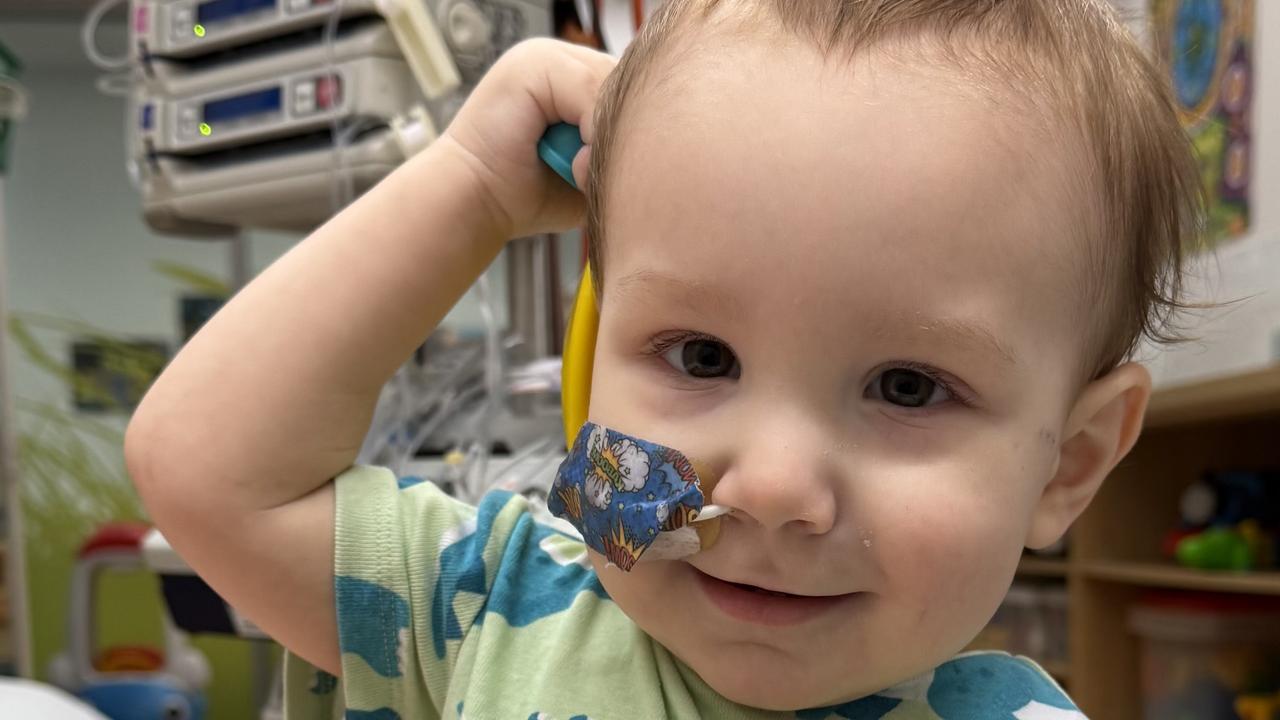City of Sydney Council passes motion on killer rat plague
The City of Sydney Council has passed a motion for further action on the rat plague that is spreading a fatal disease and has killed at least seven dogs.

Illness
Don't miss out on the headlines from Illness. Followed categories will be added to My News.
The City of Sydney has ordered an urgent review of its rat control methods amid a deadly outbreak of a disease that has claimed the lives of several pet dogs.
On Wednesday night Councillor Kerryn Phelps moved a motion calling for more efforts and funds to be put towards pest control in the city, following the death of at least seven dogs from bacterial infection leptospirosis — spread via rat urine.
“I think it’s really important to acknowledge leptospirosis as a problem,” she said.
“The city has a role but we also need to ask the state government what they intend to do about the 200 hectares of land they control,” she said.
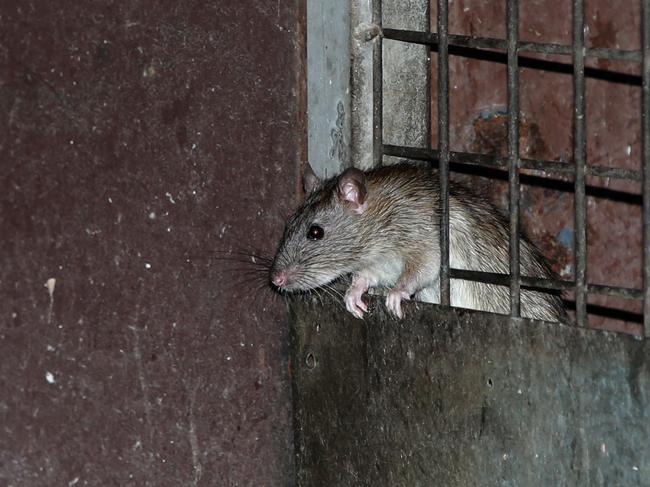
Private landholders also have a role to play, she said.
“We need to look at illegal dumping and encourage people not to dump in laneways,” she said.
“People need to be careful about food scraps and need to clear vegetation and old furniture lying around in their yards and get pest controllers in if they have a rat problem”.
Cr Phelps asked for the City of Sydney Council to benchmark the city’s rat control measures against other cities overseas and increase the vermin control budget.
Six humans in NSW have also contracted the disease, their health outcomes are not known but the disease causes organ failure in humans as well as dogs.
Symptoms in humans include high fever, headaches, bleeding, vomiting, diarrhoea and red eyes.

Chief executive officer Monica Barone declared she would commission a study of what extra eradication options were suited to the city’s conditions, as councillors agreed the current situation was unacceptable.
“We need to know the scale of our problem and what can be done in our area,” she said.
“When we know what the future program looks like, we can add it to the operational budget then.
“We don’t know if that looks like $100,000 or $400,000.”
City of Sydney Council last month announced it had doubled rat baiting in a bid to control the leptospirosis bacteria spread by rats.
MORE: War on city rats ramped up after links to dog deaths
MORE: Every pest-infested NSW restaurant revealed
It has tripled its spend on poison from $50,000 to $150,000 in the process.
Deputy Lord Mayor Linda Scott said the city did have a history of rat plagues but the current wave of “freak” rodents was concerning to all citizens.
“We’ve got to the part where we have an extraordinary large number of rats, and extraordinarily large rats. We don’t want all these rats in our city,” she said.
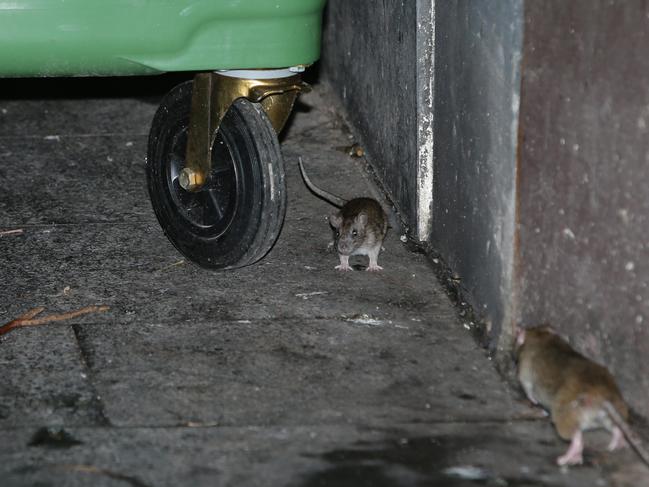
“We have to do more about this, we cannot have a situation where we have a rat infestation in the city.”
Ms Barone said the amount of waste being left on the streets was creating a source of food and habitat for the pests, a statement which councillor Philip Thalis agreed with.
Cr Thalis’ amended motion focused on increasing awareness in the community about the impacts of poor rubbish management and asked council to report back on the effectiveness of its increased rat control efforts in six months.
“It’s also contingent on the city of the people … everybody has got to do their part,” he said.
“It is a major public health concern. Even to lose one dog to a disease like this is not something we would wish on anyone.”

Vets in Sydney have been inundated with pet owners seeking to have their dogs vaccinated against the disease, which can be caught when dogs hunt rats or scavenge in soil or water contaminated by rat urine.
Humans can also catch the bacteria from their pet’s urine or from infected soil or water.
Sydney University rat expert Peter Banks said there were no real estimates of rat numbers in Sydney and for control strategies to be really effective studies needed to be done on which rats were spreading the bacteria and what their habits were.
There are two main species of rat in Sydney — the brown rats that live in sewers and black rats that are more agile and live in roofs. In addition there are many native rat species.
Benchmarking Sydney’s rat control methods to international sites may not be useful because other cities mainly had brown rats, he said.
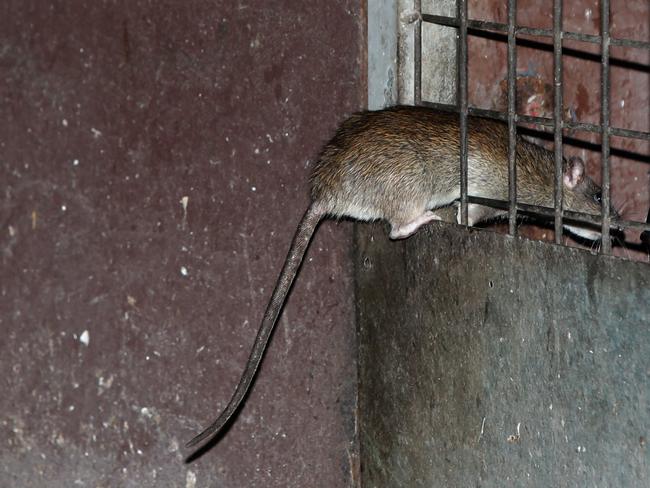
It would be easy to come up with an estimate of the number of rats if the council paid for a study that captured and marked rats and set them free.
Several weeks later the rats should be captured again and when the number of marked and unmarked rats were compared it would provide a way of estimating their total number, he said.
Another program should test which rats were carrying the bacteria so their habits could be studied and rat control measures were made more effective, he said.
To date the infected area is in the inner city regions of Surry Hills, Darlinghurst and Glebe.
Pet owners are being urged to keep their pets on leads when walking and dissuade them from catching rats, drinking urine-contaminated water or licking contaminated soil.
Pet owners are also being warned not to leave rat baits around their homes because dogs and cats will eat them and the effects could be fatal.
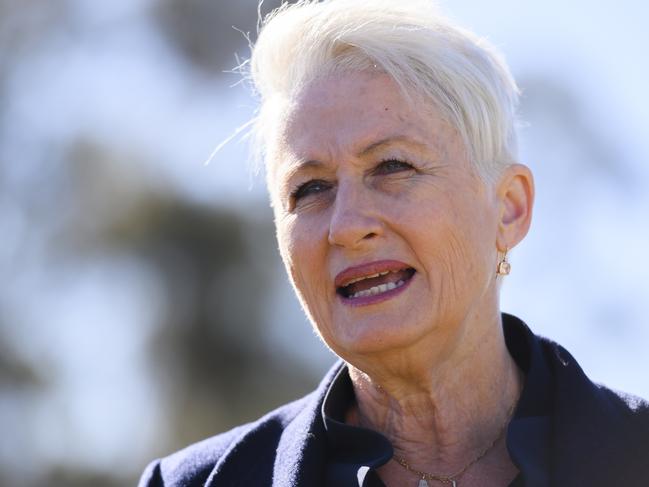
The City is monitoring the effectiveness of the enhanced baiting program and will map hot spots where residents sight rats or rats are killed with baits, and consider further funding based on the results of that monitoring.
The council had already completed international benchmarking, and had “been found to perform on par with cities such as New York, Chicago and Washington”, he said.
The Council has also written to Sydney Trains, Property NSW and the Land and Housing Corporate Housing Corporation to urge them to increase baiting and monitoring of rats on their land.
Free vaccinations against the disease to dogs are being provided to residents in the Northcott social housing estate next to Ward Park.
Originally published as City of Sydney Council passes motion on killer rat plague

